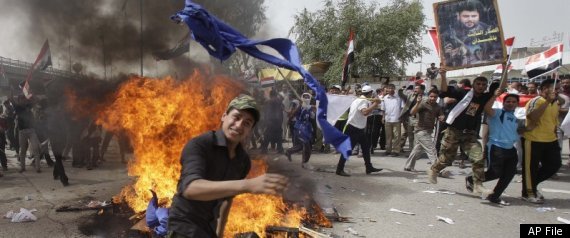 Lost in the renewed scrutiny into President Barack Obama’s birth records is the fact that anyone can walk into a Hawaii vital records office, wait in line behind couples getting marriage licenses and open a baby-blue government binder containing basic information about his birth.
Lost in the renewed scrutiny into President Barack Obama’s birth records is the fact that anyone can walk into a Hawaii vital records office, wait in line behind couples getting marriage licenses and open a baby-blue government binder containing basic information about his birth.
Highlighted in yellow on page 1,218 of the thick binder is the computer-generated listing for a boy named Barack Hussein Obama II born in Hawaii, surrounded by the alphabetized last names of all other children born in-state between 1960 and 1964. This is the only government birth information, called “index data,” available to the public.






 Lost in the renewed scrutiny into President Barack Obama’s birth records is the fact that anyone can walk into a Hawaii vital records office, wait in line behind couples getting marriage licenses and open a baby-blue government binder containing basic information about his birth.
Lost in the renewed scrutiny into President Barack Obama’s birth records is the fact that anyone can walk into a Hawaii vital records office, wait in line behind couples getting marriage licenses and open a baby-blue government binder containing basic information about his birth. The U.S. military says two American soldiers have been killed while conducting operations in southern Iraq. In a statement, released on Saturday, the military says the deaths occurred Friday.
The U.S. military says two American soldiers have been killed while conducting operations in southern Iraq. In a statement, released on Saturday, the military says the deaths occurred Friday. Veterans whose claims had already spent years in the VA system often wait several more years for the court to rule on whether they will receive disability payments and free health care. Some have abandoned their appeals. Others, including soldiers from as far back as World War II, have died before a decision was issued.
Veterans whose claims had already spent years in the VA system often wait several more years for the court to rule on whether they will receive disability payments and free health care. Some have abandoned their appeals. Others, including soldiers from as far back as World War II, have died before a decision was issued. Former chief U.N. nuclear inspector Mohamed ElBaradei suggests in a new memoir that Bush administration officials should face international criminal investigation for the "shame of a needless war" in Iraq.
Former chief U.N. nuclear inspector Mohamed ElBaradei suggests in a new memoir that Bush administration officials should face international criminal investigation for the "shame of a needless war" in Iraq. Smokers may soon have no safe havens to light up outside their own homes. That's the hope, at least, among anti-tobacco crusaders at the
Smokers may soon have no safe havens to light up outside their own homes. That's the hope, at least, among anti-tobacco crusaders at the  Prime Minister Benjamin Netanyahu expressed willingness to join Ehud Olmert's government in 2007 if Israel initiated an attack on Iran, a document from the Israeli WikiLeaks collection has revealed.
Prime Minister Benjamin Netanyahu expressed willingness to join Ehud Olmert's government in 2007 if Israel initiated an attack on Iran, a document from the Israeli WikiLeaks collection has revealed. Five out of six men convicted of gang-raping a Pakistani woman were acquitted by Pakistan's Supreme Court on Thursday, in a highly watched decision that critics say will set back the struggle for women’s rights.
Five out of six men convicted of gang-raping a Pakistani woman were acquitted by Pakistan's Supreme Court on Thursday, in a highly watched decision that critics say will set back the struggle for women’s rights. News that certain mobile phone manufacturers have embedded technology in their devices that tracks owners' movements has raised alarms among privacy rights advocates even though it has been somewhat of an open secret since last year.
News that certain mobile phone manufacturers have embedded technology in their devices that tracks owners' movements has raised alarms among privacy rights advocates even though it has been somewhat of an open secret since last year.






























